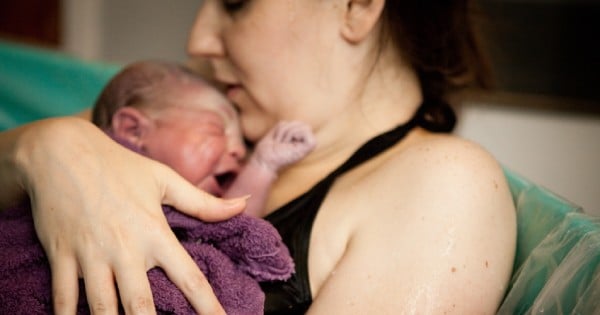
You hear plenty of homebirth horror stories.
At Mamamia we’ve reported a number of them ourselves; the tragic and preventable death of Caroline Lovell, the twin baby boy who died during a homebirth in Adelaide, Jessa Duggar was rushed to hospital because of post-birth complications, and Ruth Irorio’s near-death experience.
The stories are tragic and newsworthy, so it’s right that they should be reported. But stories about successful homebirth experiences are few and far between.
That’s fair enough. After all, who would read a story headlined: ‘Woman gives birth to baby and everyone was delighted.’ It’s almost as un-newsworthy as ‘Dog bites man’.
But the unintended consequences of all that reporting of horror homebirth stories is that you might get the impression that giving birth is a neglectful, selfish thing to do.
It’s not.
That’s not to say homebirth is for everyone. It’s not that either.
But where a mother chooses it, and her caregivers can support it, homebirth is a rewarding, safe, comforting and empowering experience, and it’s one that needs to be better supported in the Australian health system.
Almost five years ago, Sydney writer Jenn Davis, who blogs as Penny Poppleton, gave birth to her daughter, Piper at home.
“We chose to have homebirths for a few reasons. One, I have anxiety around hospitals, doctors, and health care. It’s profound enough I feared that my births would stall or be miserable, so we weighed the risks and as my pregnancy was very low-risk and I was healthy, we opted for midwife-assisted delivery at home.




























































































